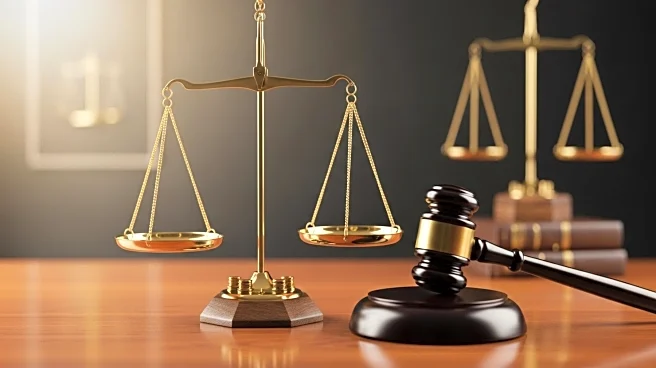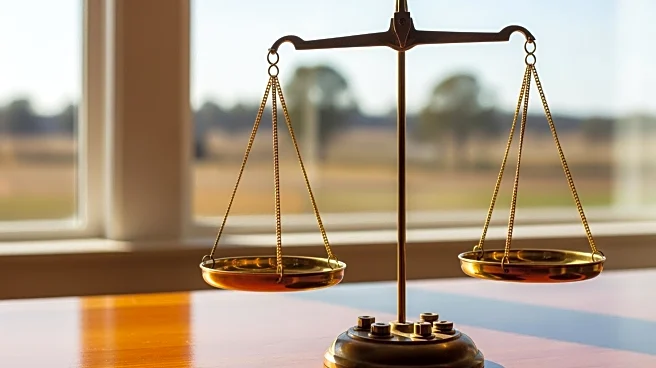What is the story about?
What's Happening?
Former FBI Director James Comey is facing legal challenges after pleading not guilty to charges of lying to Congress and obstructing a congressional proceeding. These charges stem from his testimony before the Senate Judiciary Committee in 2020. Comey's defense team, led by Patrick Fitzgerald, plans to argue for the dismissal of the charges on several grounds. They claim the prosecutor's appointment was invalid, the prosecution is selective and vindictive, and the grand jury process was abusive. The indictment alleges Comey falsely testified about authorizing an FBI leak, but the defense argues they lack information on the anonymous source involved. The legal proceedings are set to continue with hearings scheduled for November and December, aiming for a trial in January.
Why It's Important?
The legal battle surrounding James Comey is significant as it highlights potential issues of prosecutorial conduct and executive influence in legal proceedings. If Comey's defense successfully argues that the prosecution is vindictive or selective, it could set a precedent affecting how similar cases are handled in the future. The involvement of President Trump in appointing the prosecutor raises questions about political interference in legal matters. This case could impact public trust in the justice system and the perceived impartiality of legal processes, especially when high-profile figures are involved.
What's Next?
The court has scheduled hearings for November 19 and December 9 to address the defense's arguments for dismissing the charges. Judge Michael Nachmanoff aims to maintain a speedy trial schedule, with a potential trial date set for January 5. Both sides anticipate a brief trial, lasting no more than three days. The defense is also seeking security clearances to review classified materials related to the case. The outcome of these hearings and the trial could influence future legal strategies and the handling of cases involving political figures.
Beyond the Headlines
The case against James Comey raises broader questions about the balance between political power and legal accountability. Allegations of vindictive prosecution suggest a potential misuse of legal authority to target individuals for political reasons. This situation underscores the importance of maintaining judicial independence and ensuring that legal proceedings are free from political bias. The case could also prompt discussions on the ethical responsibilities of prosecutors and the need for transparency in legal appointments.















